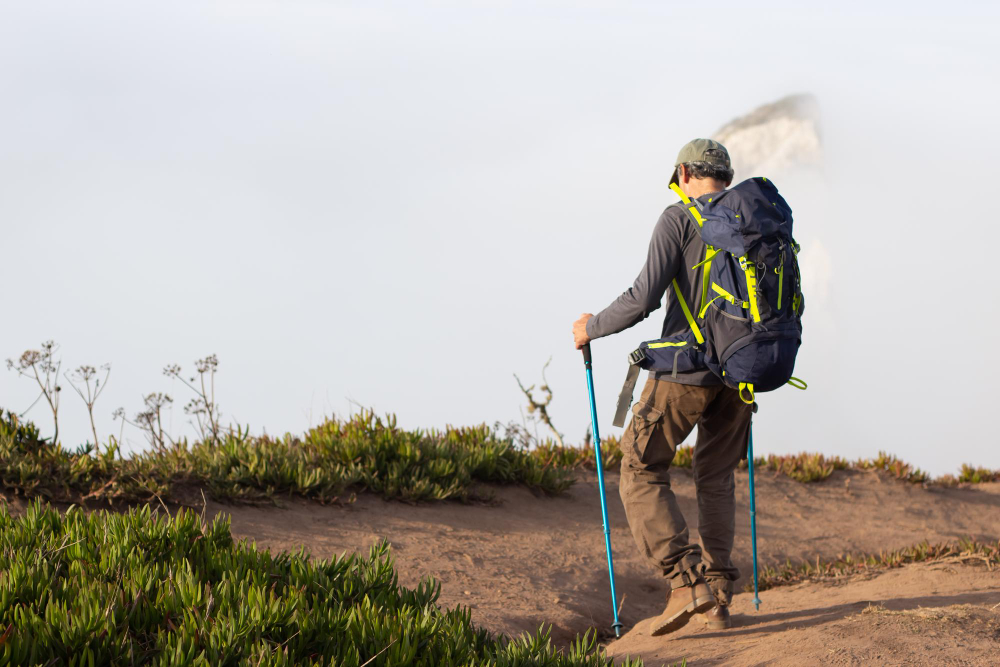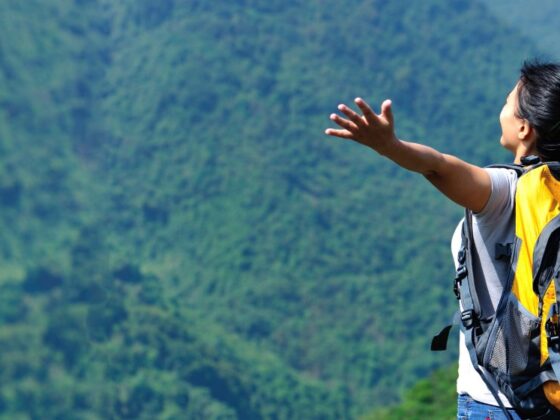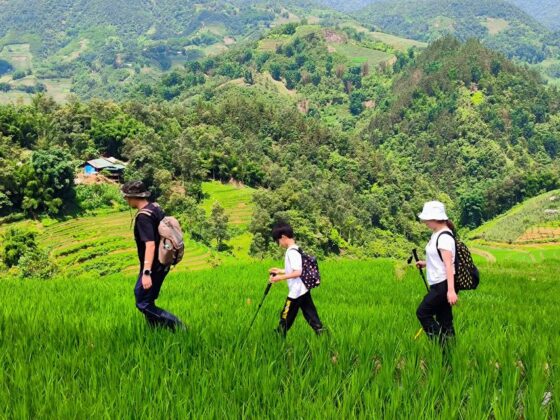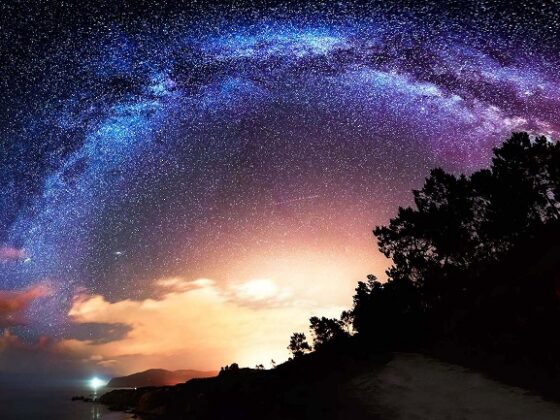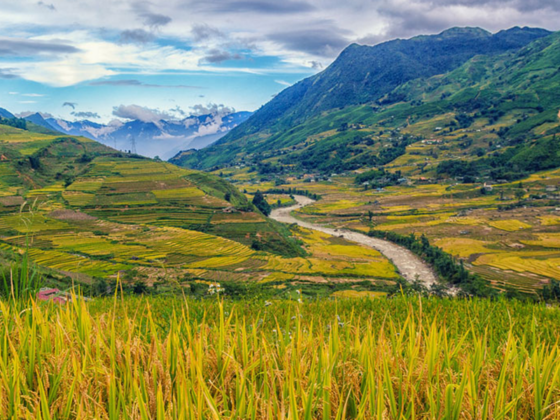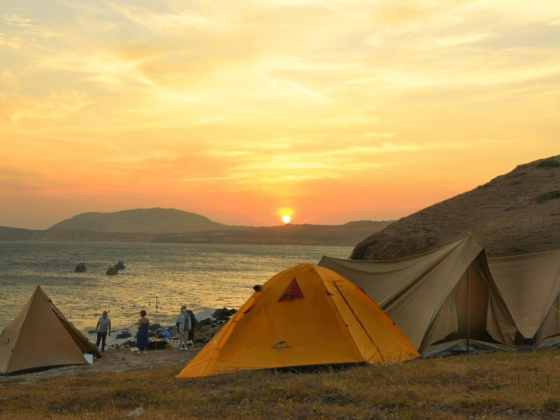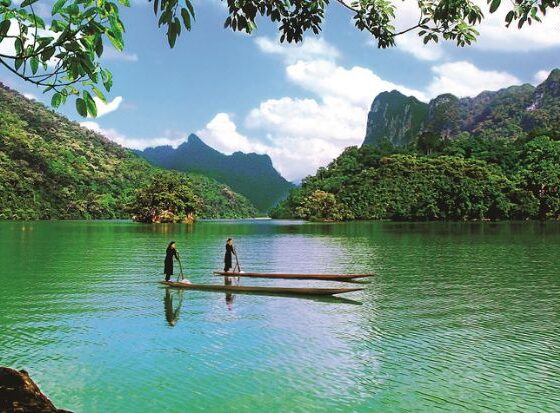Table of Contents Show
✍️ AI is summarizing:
There’s a moment on every solo hike when the world goes quiet. No conversation. No notifications. Just your breath, your boots, and the rustle of wind through the trees. And in that stillness, somewhere between the start and the summit, you realize you’re not lonely, you’re experiencing the true benefits of hiking alone. You’re free.
Solo hiking has a way of stirring strong opinions. Some people find it intimidating, even reckless. Others romanticize it, chasing an Eat-Pray-Love kind of solitude. The truth lies somewhere in the middle and it’s where the real benefits of hiking alone begin.
Read more interesting posts:
- Eco-Chic Escapes: A Guide to Sustainable Glamping in Vietnam
- You Belong Outside: A Gentle Guide to Hiking for Beginners
- Wander, Wonder, and Find: Embracing the Joy of Getting Lost on the Trail
Discovering the unexpected benefits of hiking alone
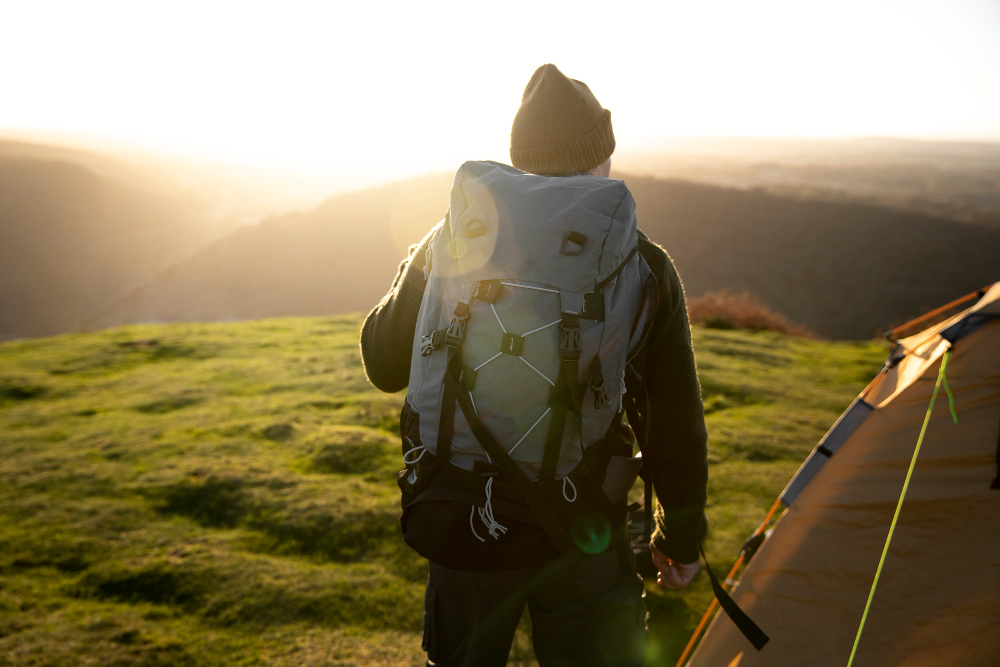
For me, it started out of necessity. Plans fell through, no one was free, and I was craving the outdoors. So I went. Just me, a packed lunch, and a trail I’d saved on the ExoTrails. I told a friend where I’d be, double checked the weather, and set off an unplanned start that opened my eyes to the unexpected benefits of hiking alone.
The first half hour was awkward. I was hyper-aware of every sound. But slowly, the tension eased. I began to listen differently to the rhythm of my own pace, the birds, my breath. And what I found was surprising: I wasn’t scared. I was present.
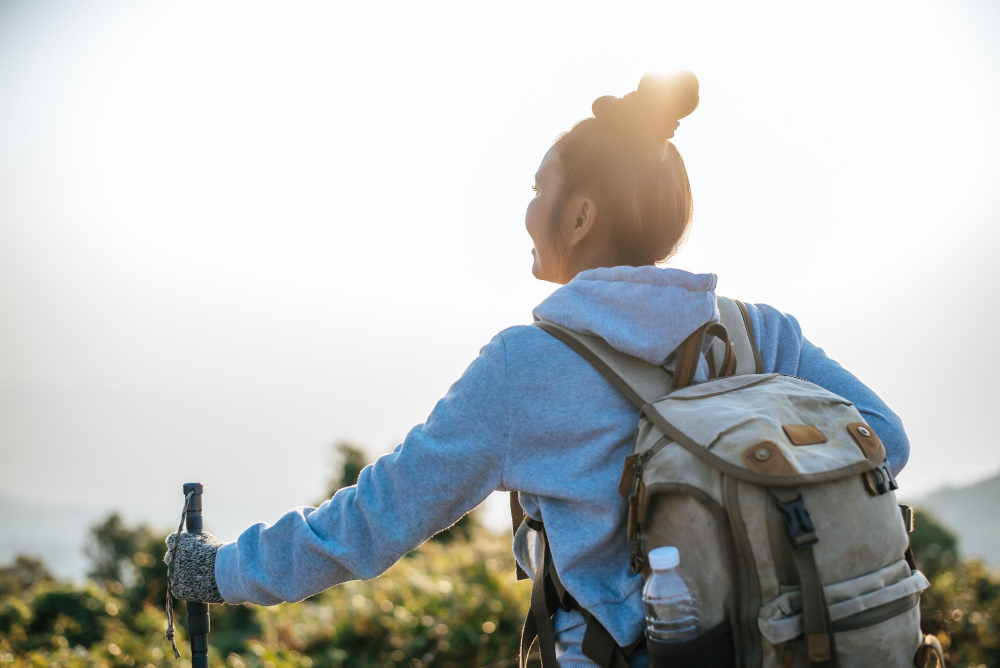
There’s something beautiful about moving through nature alone. No one to impress. No conversation to fill the air. Just space, mental, emotional, and physical. This is one of the most profound benefits of hiking alone: it gives you permission to feel, something our fast, noisy world rarely allows.
How to stay safe while enjoying the benefits of hiking alone
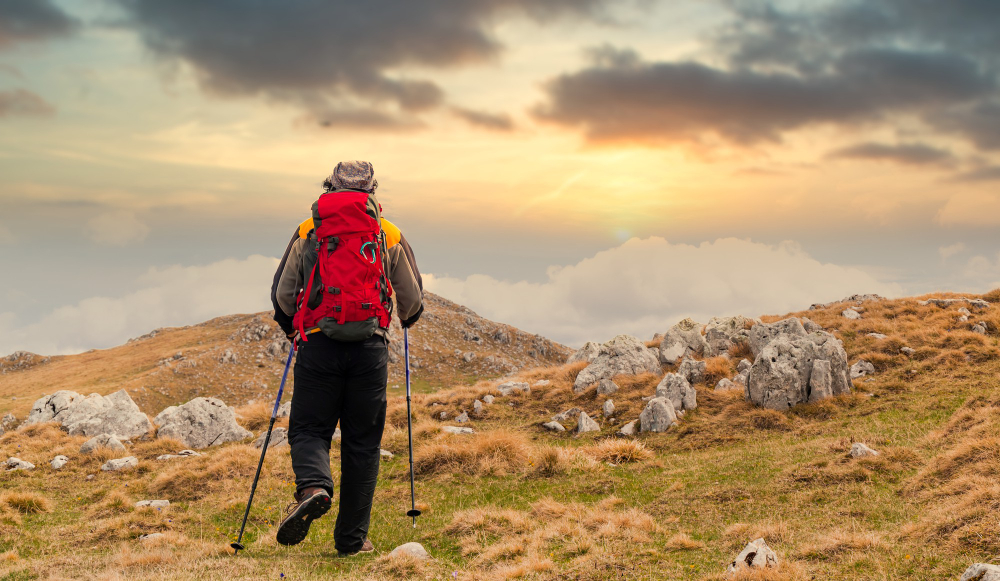
Of course, the fears around solo hiking are valid especially for women and marginalized folks. Safety matters. So does preparation. But the good news is: it’s absolutely possible to hike alone, feel secure, and still embrace the many benefits of hiking alone.
Here’s what helped me:
- Tell someone your plan: Share your route and estimated return time.
- Pack with purpose: First aid, water, map, charger, headlamp even for short trails.
- Know the terrain: Use apps like ExoTrails to preview trail conditions, difficulty, and community tips.
- Trust your instincts: If something doesn’t feel right, turn back. No summit is worth your peace of mind.
How technology can enhance the benefits of hiking alone
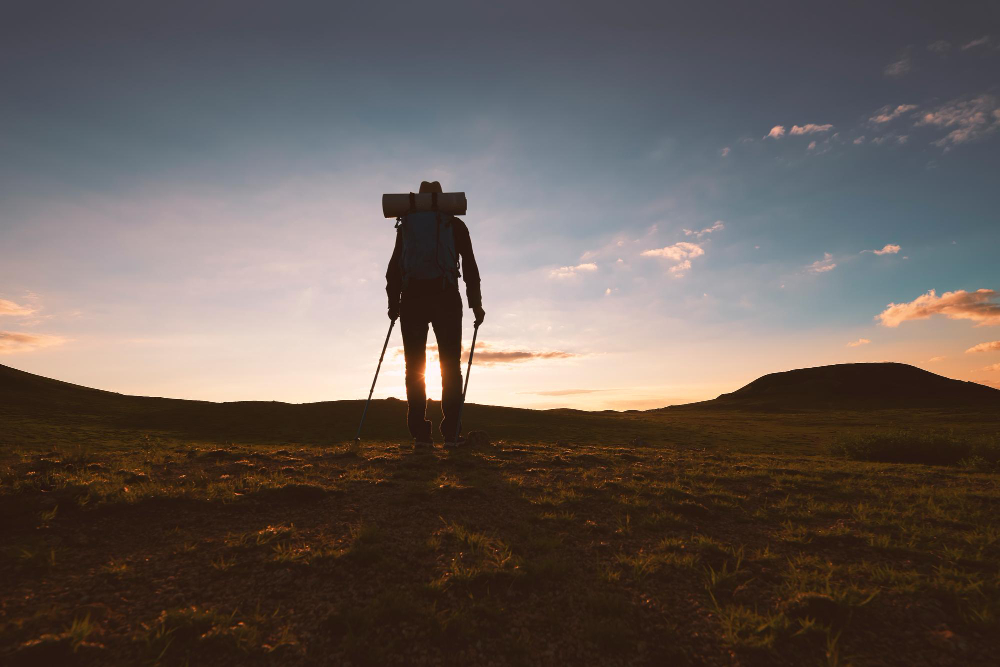
ExoTrails, in particular, has made solo hiking feel less isolating. It’s like a quiet companion in your pocket offering offline maps, trail notes, and nearby alternatives if plans change. I’ve even found trails with more foot traffic when I want to feel part of a quiet outdoor rhythm, without being in a crowd. It connects you to a community of fellow hikers, even when your boots hit the trail alone, reminding me of the unexpected benefits of hiking alone.
Over time, I’ve learned that the benefits of hiking alone build more than muscle. It builds resilience. Self-trust. Clarity. The kind of confidence that comes not from knowing everything, but from learning how to adapt. To rely on yourself. To enjoy your own company.
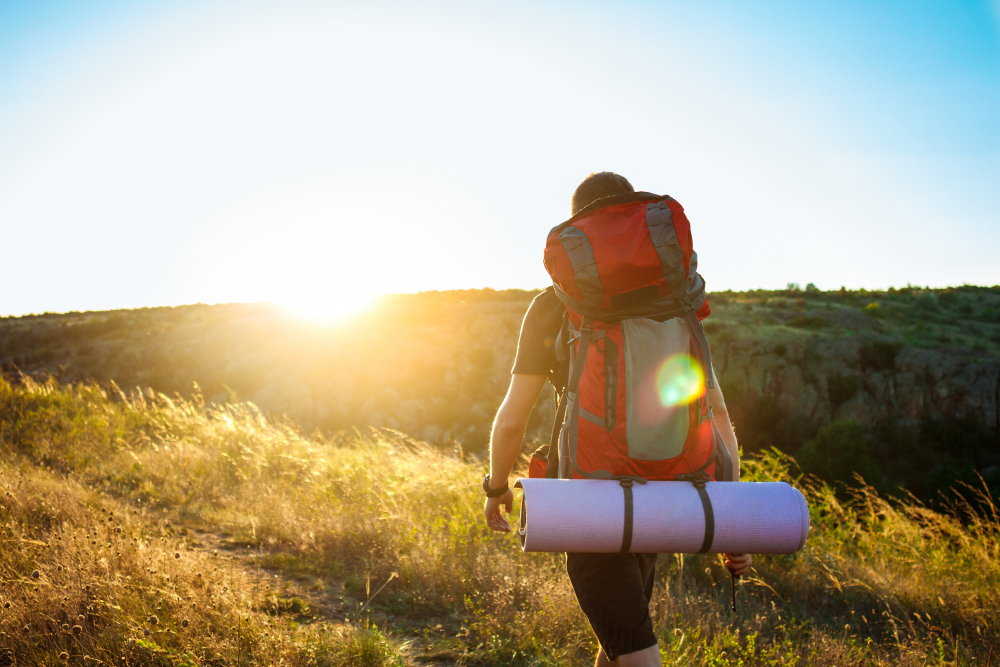
And let’s be honest, when was the last time you truly spent time with just you? No screens. No noise. No roles to play. That’s not loneliness. That’s liberation.
So if you’ve been curious about hiking solo, here’s your gentle push. Start small. Choose a familiar trail. Use the tools that exist to help you feel confident and safe. And then go not to get somewhere fast, but to find something slow. Something honest. In doing so, you’ll begin to discover the deeper benefits of hiking alone.
Because in the quiet of the forest, you might just hear your own voice again. And it’s probably been waiting for you.
A gentle but crucial reminder for every solo hiker
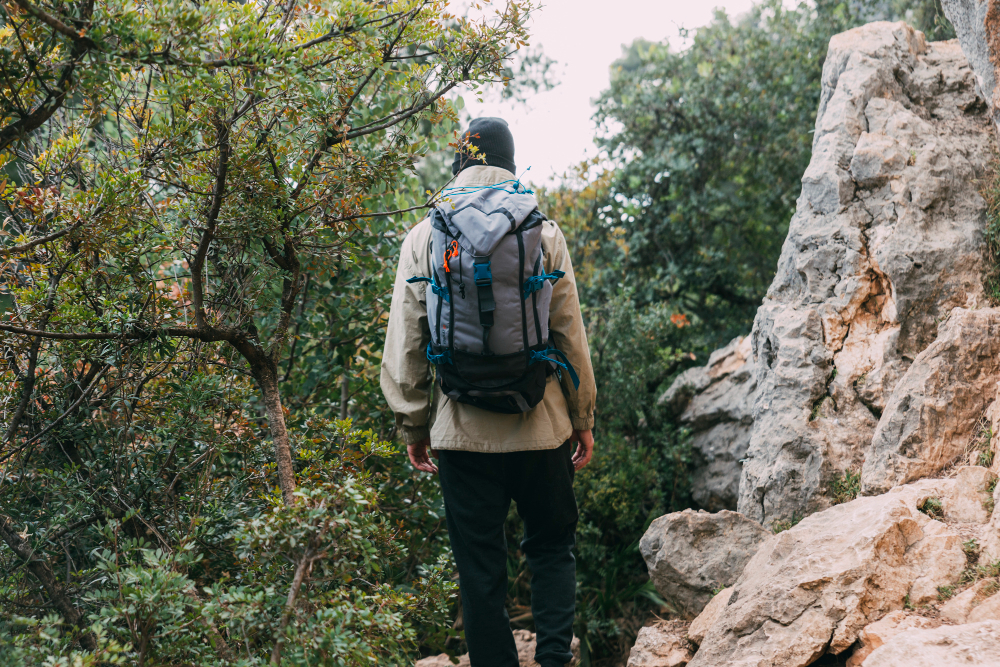
No matter how freeing and empowering the journey may feel, safety must always come first. The biggest risk in hiking alone isn’t the solitude itself, it’s being unprepared. Nature can be unpredictable: weather shifts quickly, trails may be tougher than expected, and even a small injury can turn serious without support.
That’s why preparation isn’t optional, it’s essential. Check the forecast, carry enough water and food, pack navigation tools, a power bank, and always share your route and return time with someone you trust. Hiking solo doesn’t mean hiking recklessly, it means hiking with greater awareness, discipline, and care. Only when safety is respected can you fully embrace the true benefits of hiking alone.
Conclusion
In the end, the benefits of hiking alone extend far beyond the trail. It’s a practice in self-reliance, a meditation in motion, and a powerful reminder that your own company is not just enough, it’s a source of strength. The greatest discovery on a solo hike isn’t a hidden viewpoint; it’s the quiet, capable person you find within yourself.
Ready to start your solo journey? Join our community of explorers in the ExoTrails Facebook Group and follow the ExoTrails Fanpage for daily inspiration and trail tips!
FAQs
Why should I try hiking by myself?
You should try it to build self-confidence, enjoy uninterrupted time for self-reflection, and connect with nature on a deeper, more personal level.
Is it weird to go hiking alone?
Not at all. It is a common and rewarding practice for many people seeking solitude, personal challenge, and a peaceful escape in nature.
How do you stay safe when hiking solo?
Always tell someone your route and return time, carry essential safety gear, use a reliable trail app with offline maps, and trust your instincts.
What are the best tips for a first-time solo hiker?
Start on a well-marked, familiar trail, choose a shorter route, go on a day with good weather, and make sure your phone is fully charged.
How do you deal with loneliness when hiking alone?
Reframe the experience as “solitude” rather than “loneliness.” Focus on your surroundings, your breath, and the freedom of being with your own thoughts.

